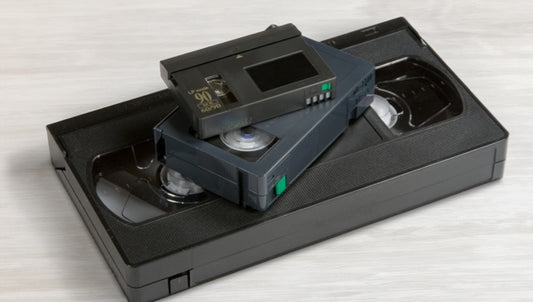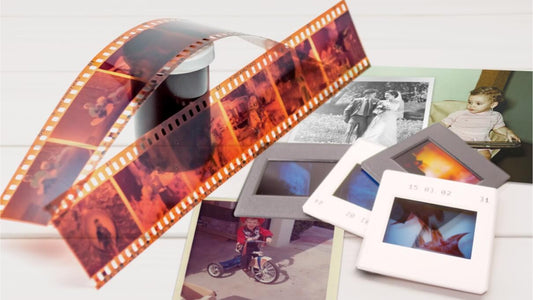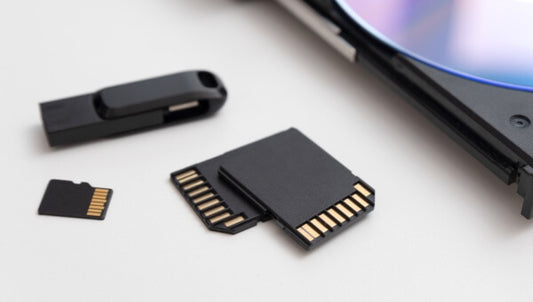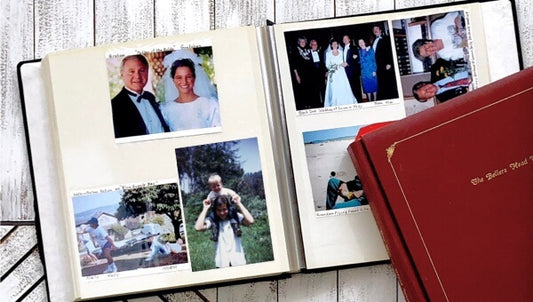Have you ever found yourself struggling to recall a cherished memory? Maybe it's an old photograph that brings a smile to your face, but the details seem fuzzy. Or perhaps it's a story from your childhood that your family often recounts, but you can't quite remember it yourself. Understanding how memory works and finding ways to recall those forgotten moments can help you reconnect with your past and improve your brain health.
Jump to:
- Understanding Memory
- Techniques to Recall Forgotten Memories
- Digital Tools for Memory Preservation
- The Role of Brain Health in Memory
- Dealing with Memory Loss and Problems
- Practical Tips for Memory Improvement
- Want an Even Easier Solution?
Understanding Memory
How Memory WorksYour memory is a complex system, like a vast library in your brain. It stores different types of memories: episodic (events), semantic (facts), and procedural (skills). The hippocampus and neurons play a crucial role in forming and retrieving these memories. When you try to recall an old memory, your brain retrieves it from storage, much like taking a book off a shelf.
Why We Forget
Forgetting is a natural process. It can happen due to various reasons such as lack of use, age, stress, or even certain life events. The cortex and hippocampus are involved in this process, and understanding why we forget can help us develop techniques to recall old memories more effectively.
The Importance of Recalling Memories
Recalling memories isn't just about nostalgia. It plays a significant role in your mental health and overall well-being. It helps you maintain a sense of identity, strengthen relationships with family members, and can even boost cognitive functions.
Techniques to Recall Forgotten Memories
-
Engaging with the Past
- Listening to Music from the Past: Music has a powerful way of evoking memories. Listening to songs from different time periods can bring back vivid memories and emotions.
- Watching Old Movies or TV Shows: Visual stimuli, such as old movies and TV shows, can help you remember specific times and characters, enhancing your memory recall.
- Looking Through Old Photographs: Visual and tactile cues, like photographs and letters, can trigger specific memories from different stages of life. This simple activity can bring forgotten memories to the forefront of your mind.
-
Using Sensory Triggers
- The Power of Smell: Certain smells have a strong connection with memories. For instance, the smell of a particular perfume or freshly baked cookies can transport you back to specific times and places.
- Tactile Experiences: Touching objects from your childhood or holding family heirlooms can evoke memories associated with those items.
-
Interactive Memory Recall Techniques
- Memory Games and Puzzles: Engaging in activities like crossword puzzles, trivia, and memory games can help recall facts and events. These games stimulate the hippocampus and other parts of the brain involved in memory.
- Storytelling and Sharing Memories: Sharing stories with family and friends not only keeps memories alive but also reinforces them in your brain. The social interaction involved in storytelling is beneficial for memory retention.
-
Creating a Memory Journal
- Writing Prompts: Using suggested prompts to start writing about past experiences can help jog your memory. Regular journaling about your life events strengthens your memory recall.
- Scrapbooking and Memory Albums: Combining photos, mementos, and written memories into albums or scrapbooks is a creative way to organize and preserve your memories. This visual and written combination is powerful for memory retention.
-
Exploring New Skills and Activities
- Taking up New Hobbies: Learning new skills or hobbies can trigger related memories and keep your brain active. It creates new neural pathways that can enhance your ability to recall old memories.
- Learning New Facts: Staying intellectually active by learning new information can keep your memory sharp and improve your overall cognitive health.
Digital Tools for Memory Preservation
-
Social Media and Digital Platforms
- Using Social Media: Platforms like Facebook and Instagram often remind you of past events through photos and posts. These digital memories can help you recall and share old memories with family and friends.
- Digital Memory Journals: Apps and digital platforms designed for memory preservation allow you to document and organize your memories. Features like voice recording and photo uploads make it easy to capture and revisit memories.
The Role of Brain Health in Memory
Maintaining good brain health is crucial for memory preservation. Regular physical exercise, a balanced diet, and adequate sleep are essential for optimal brain function. Mental health is equally important, as stress and anxiety can negatively impact memory. Practicing mindfulness and relaxation techniques can help improve your memory and overall cognitive function.
Dealing with Memory Loss and Problems
Memory loss can be a result of various factors including age, stress, and mental health issues like Alzheimer's disease and post-traumatic stress disorder. It can be frustrating and even scary to experience memory problems. But understanding that this is a common part of aging and knowing how to manage it can help alleviate some of the stress.
-
Addressing Traumatic Memories
- Sometimes, traumatic events from your past can be the reason behind lost memories or false memories. Cognitive behavioral therapy can be helpful in dealing with these issues by addressing the trauma and helping you process these memories in a healthier way.
-
Recognizing the Signs of Memory Loss
- Early signs of memory loss include forgetting important dates or events, asking the same questions repeatedly, and relying more on memory aids. Recognizing these signs early can help you take steps to manage them better.
-
Improving Everyday Life
- Simple lifestyle changes like maintaining a regular sleep schedule, eating a balanced diet rich in brain-healthy nutrients, and staying physically active can significantly improve your memory. Keeping your brain engaged through reading, puzzles, and learning new skills can also help.
Practical Tips for Memory Improvement
-
Routine and Consistency
- Keeping a routine can help improve memory. Doing the same tasks at the same time each day can make it easier to remember them. Consistency in your daily activities can help reinforce your memory.
-
Stress Management
- Managing stress is crucial for maintaining good mental health and memory. Techniques such as mindfulness, meditation, and yoga can help reduce stress levels and improve memory.
-
Healthy Diet
- Eating a diet rich in fruits, vegetables, whole grains, and lean proteins can support brain health. Foods high in antioxidants and omega-3 fatty acids, such as fish, nuts, and seeds, are particularly beneficial for memory.
Want an even easier solution?
Now, imagine if all these cherished moments could be preserved in a way that ensures they never fade, never degrade, and are always accessible for future generations to enjoy.
Capture offers you that opportunity.
With our high-quality digital conversion services, your family's treasured memories can be transformed from old formats like VHS, film reels, and negatives into modern digital formats.
Preserve the stories that define your family's history. Convert your memories with Capture today and ensure they remain safe, accessible, and ready to be shared for generations to come.
Click here to learn more about Capture’s exceptional services.
Don’t let your precious memories fade away. Trust Capture to help you keep them alive, vibrant, and a continuous part of your family's story. Because let's be honest, every family needs that classic video of Grandpa's legendary dance moves ready for the next reunion!










